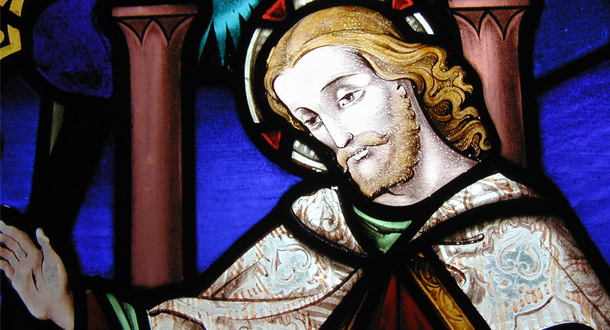 Scripture
Scripture
Wisdom 12:13, 16-19
Romans 8:26-27
Matthew 13:24-43
Reflection:
And the one who searches hearts knows what the intention of the Spirit is, because he intercedes for the holy ones according to God’s will. -Romans 8:27
This Sunday’s Gospel puts before us three more parables of Jesus. All three of them begin with the phrase: “The kingdom of heaven is like . . .” All three parables give us images that are familiar and easily understood. Furthermore, all three of them challenge the way that the Scribes and the Pharisees portray God, the God of the Law of Moses, the God who favors the rich and the powerful and excludes the lepers and the widows, the God who loves those who keep the letter of the law, regardless of its consequences.
Starting with Chapter 9, the Scribes and the Pharisees began to openly oppose Jesus’ teachings and powerful signs of Goodness. Jesus heals a paralytic by forgiving his sins, and the Scribes object.
Jesus calls Matthew, a tax collector, and dines with him. The Pharisees complain to his disciples that their Master eats with sinners, the unclean. Later, the Pharisee accuse Jesus of driving out evil spirits by the power of the prince of demons.
Jesus knew that the people who came to hear him preach and teach, to be healed and consoled and be comforted and relieved of their burdens were the ones taught by the Scribes and Pharisees on how to pray and give alms and fulfill their obligations to the Temple. Jesus needed to teach the people who flocked to him a more loving God, a compassionate God, a forgiving God. In other words, Jesus was revealing to them his Father in these parables, the Father that the wise and the learned would never know.
It was that point in Jesus’ ministry that he begins to teach in parables. All of these parables have something in common, they describe Jesus’ God and not the God of the Scribes and Pharisees. The parables are like PowerPoint images of God. There are images of the seed being sown generously, allowing it to fall where it may, in the path, in rocky soil and among the thorns, as well as good soil where it produces abundantly. Images of the wheat and the weeds growing up together, of a woman in her kitchen making bread. One does not need to work hard at all to imagine these images.
The parables today talk to us about a God who allows the good and the bad to grow, knowing full well that ultimately only the goodwill endure. Jesus also lets us know that God’s mustard seed far surpasses our imagination for sustaining life. And God is like the woman who mixes a bit of yeast into three measures of wheat flour and the whole batch is leavened.
In other words, God is not depending upon us to save the world, but to be the ones through which the world is saved. We are, after all, God’s creation, made in the image and likeness of God.
As Jesus says at the conclusion of this Gospel passage: “Whoever has ears ought to hear.” So, if today you hear God’s word, harden not your hearts!
Fr. Clemente Barrón, C.P. is a member of Mater Dolorosa Community in Sierra Madre, California.
